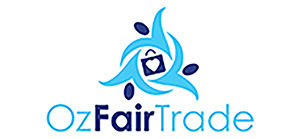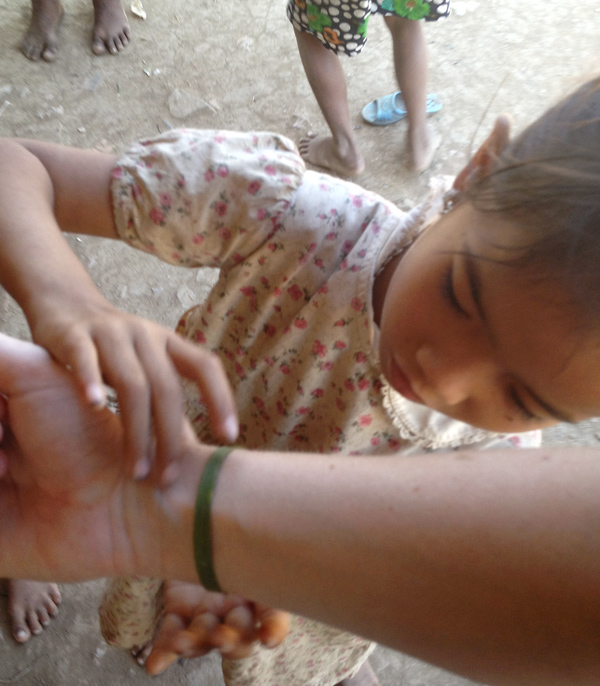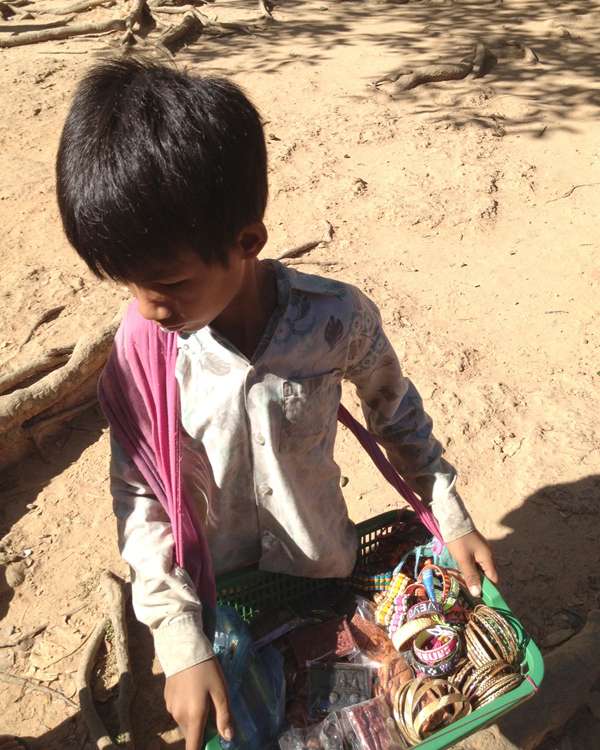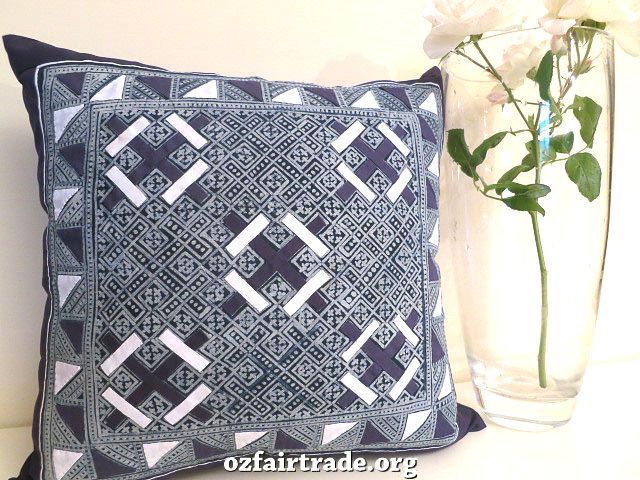I’ve decided to try and do a monthly post about inspirational people and organisations whom are working to create positive social and environmental change and global economic security. These people deserve to be spotlighted, because they have purposefully gone out of their way to selflessly craft something that is real in this world, something that is actually needed. These people are not feeding pointless consumerism, but are working within the many constraints of our current systems to make a difference. These people will inevitably be the ones who will help us to move away from this system eventually, they will become the game changers.
This month’s game changer: Oz Fair Trade

Oz Fair Trade is an Australian not-for-profit online business that imports and stocks quality fair trade products that have been produced in developing countries by people in poverty. After an eye-opening adventure in Southeast Asia, Qinnie Wang made it her mission to do something in her life that would address the discomfort and confusion she felt as seeing fellow humans in struggle. Thus, Oz Fair Trade was born.
Thousands of people visit Cambodia, Vietnam, Laos and Thailand every year. Many are moved by the resilience and resourcefulness of the beautiful people they encounter, and many also feel regularly uncomfortable at the apparent unfairness of the livelihood forced upon the people in these parts of the world (me included). But few actually do something about it.
The truth is, this lifestyle isn’t chosen, there is no choice. Mothers make their 4 year old children sell trinkets and scarves to the tourists rather than putting their children in school. This is because if they don’t, they can’t eat.

I recall on my own visit, a group of small children at a tourist attraction who claimed they could speak 5 languages. When I asked them HOW? They said it was just from talking to tourists every single day of their short life. Because if they don’t, they can’t learn to be charming and they will never sell their wares. Disbelieving, I tested them – and it was no lie. As a 6 year old Cambodian girl (dressed in a dirty rag of a dress) began to rattle off 1-10 in German, Italian, French, English and Spanish while her tiny warm fingers worked away at my wrist – where she was putting together a leaf bracelet – I felt dizzy with it all. Comprehending this reality was just too much. So I dismissed it as a reality I couldn’t change, like thousands of other good people do every year.
Upon seeing this reality Qinnie Wang found a special kind of strength within herself. So I asked her some questions to understand her own personal journey.
In your article on the Intrepid Travel website you mention the moment it all changed for you was when you resisted purchasing from some children at Angkor Wat who followed you all day, until finally you couldn’t bare the desperation and you folded – walking away with two scarves. Can you tell us what happened in that moment and how this inspired your business idea?

I was overwhelmed with sadness for the next few hours. Even today when I think back at what happened that day, I can still see the desperation in these beautiful eyes. The scarves I bought were of poor quality and clearly mass produced in a factory. But I will keep them because they remind me of the reason I started Oz Fair Trade. It all started from me questioning why beautiful handicrafts don’t make their way to Australia but mass produced things do; why these people struggle with basic needs while working so hard; why we could afford to travel overseas but it’s a unreachable dream to most village people; why we deserve to have a better life than others. The questions bothered me so much that I started researching in the hope of finding an answer and peace of mind. It led me to Fair Trade. Even though I knew about it before and shopped at Oxfam sometimes, I never really understood it until then. The more I learned about it, the more sense it made to me. Our supply chain is clearly flawed and unless consumers stand up and say ‘no’ to unethical production processes, businesses will do what’s most profitable, and the world’s most powerless and poorest will continue to live an unfair and unjust life. I also watched a few TED videos about the failure of aid in the alleviation of poverty and the rise of social enterprises. It made me more determined to pursue Fair Trade.
How do you envision Oz Fair Trade changing the lives of people in poverty? Can you explain a bit about the way it works?
Most of those who make handicrafts are women. The fair trade model allows them to work from home and work around other activities such as farming. There’s no machinery involved so it’s inexpensive to start, and it allows them to stay in the village and look after their children instead of being forced to work in the city. It allows them to earn a sustainable income so that they could plan for crops and provide an education for their children etc. The experiences have shown that when a woman earns income the whole family benefits.
Fair trade products used to only serve a niche market. But today’s fair trade products are well designed and provide an ethical alternative to mass produced goods, with a price tag that’s often similar to comparable products. From my experience, fair trade products are often of higher quality than factory products because they are carefully handcrafted by skillful artisans who get a fair pay for their work. For these reasons consumers are increasingly willing to choose fair trade products, so it is important to provide them with that alternative.

How do you source your wares and assess quality & origin?
I love travelling, and I love getting to know the local people. I met some of my suppliers during trips, e.g. on my last day in Nepal, I rushed to three Fair Trade stores and explored their products. I also look for Fair Trade suppliers online through WFTO. I quite often receive emails from overseas suppliers who are desperate, for example, I carry some wool slippers made by a social business in Kyrgyzstan who emailed me asking for help. I checked out their story and it seems genuine to me that they are helping the local women to earn a sustainable income. Even though the postage was very high, I agreed to buy from them. Their products are well made and I plan to buy from them again. Usually before I establish a trade relationship with a new supplier I do extensive research into their social programs, who else buys from them, their history etc. If a supplier is certified by WFTO then less research is required, but I also want to support smaller suppliers who are doing the right things but can’t afford to go through the certification process. I think it’s important to support such organisations, but more thorough research is often required in these cases.
As a non-profit organisation, Oz Fair Trade donates 100% of its profits. Your focus at the moment is on donating to education, building schools and helping children get off the street. Why do you think this is an important area of focus?
When I first started, I had no business experience, and all I knew was that purchasing Fair Trade products help the most disadvantaged people to earn a sustainable income, and that I wanted to make Oz Fair Trade a charity that’s focused on trade. At first I donated the full profits to two programs run by the Intrepid Foundation: UXO Lao and building a school in Peru. They were dollar matched by the Foundation. Then I realised that I couldn’t possibly keep giving away all the profits because I’ll have no money to purchase more stocks. I realised that cashflow is extremely important for a start-up, and unless I could run it as a sustainable business I would not achieve what I set out to do. So since then I have been reinvesting profits into purchasing more stocks. I know that every purchase I make helps struggling families to earn a sustainable income so that their children can get an education and they are able to lift themselves out of poverty.
At the same time, I have been studying how other not-for-profits run and trying to figure out a suitable model for Oz Fair Trade. For example, Ten Thousand Villages (US) uses all its profits to purchase more fairtrade stocks; Trade Aid (NZ) has a profit share model with its suppliers but that only started after the business matured; Oxfam (AUS) runs great development programs but they are funded by donations and government funding; Tradecraft (UK) uses all its profits to grow its product range and relies on donations and government funding to provide for its development programs. I also looked at one-for-one models used by TOMS and Zambrero, but it doesn’t strike me as being suitable for Oz Fair Trade. At the moment, I’m still exploring various options, and I like the Trade Aid’s profit share model. However, that would only be possible after the business matures in the cashflow sense.
What sort of products can people find at Oz Fair Trade?
My current product range includes homeware (hand woven table runners, batik dyed cushions with inserts made from recycled water bottles), jewellery, hand woven scarves (cotton, silk, alpaca), bags, toys (finger puppets), children’s accessories etc. The most popular items are recycled bombshell spoons and jewellery from Laos and Cambodia. I think people find them interesting and meaningful. Moving forward, I’m in two minds. On one hand, I could specialise in the recycled bombshell products because they are the most popular, and I could improve on the product range and quality. They also seem to be the most story-worthy in the eyes of journalists. On the other hand, there are so many other producers I want to support and so many beautiful products I want to introduce to the Australian market. Actually I was expecting more than 100 kg of new products from Nepal just recently, but DHL has somehow lost them all.
How has your full time job as an actuary helped develop and future-proof the Oz Fair Trade business plan?
I did do a business plan but I don’t think I ever looked at it again! Being an actuary requires an analytical set of mind, which helps me in terms of problem solving and cost-benefit analysis. However, I’m much too emotional and risk inclined to be a good actuary. I’m often driven by instincts. So I can’t say that being an actuary helps me to future proof my business plan, but I’m sure I have benefited from years of analytical training and some basic knowledge in economics, statistics and accounting, even though I don’t realise it. One thing actuarial studies introduced me to was microfinance, which is my other passion. At the moment I’m helping the Institute of Actuaries to build a microfinance website and forum, and I truly believe in the power of microfinance just as I believe in the power of Fair Trade.

Check out the Oz Fair Trade website for some great products and support this wonderful business today.
Leave a Reply